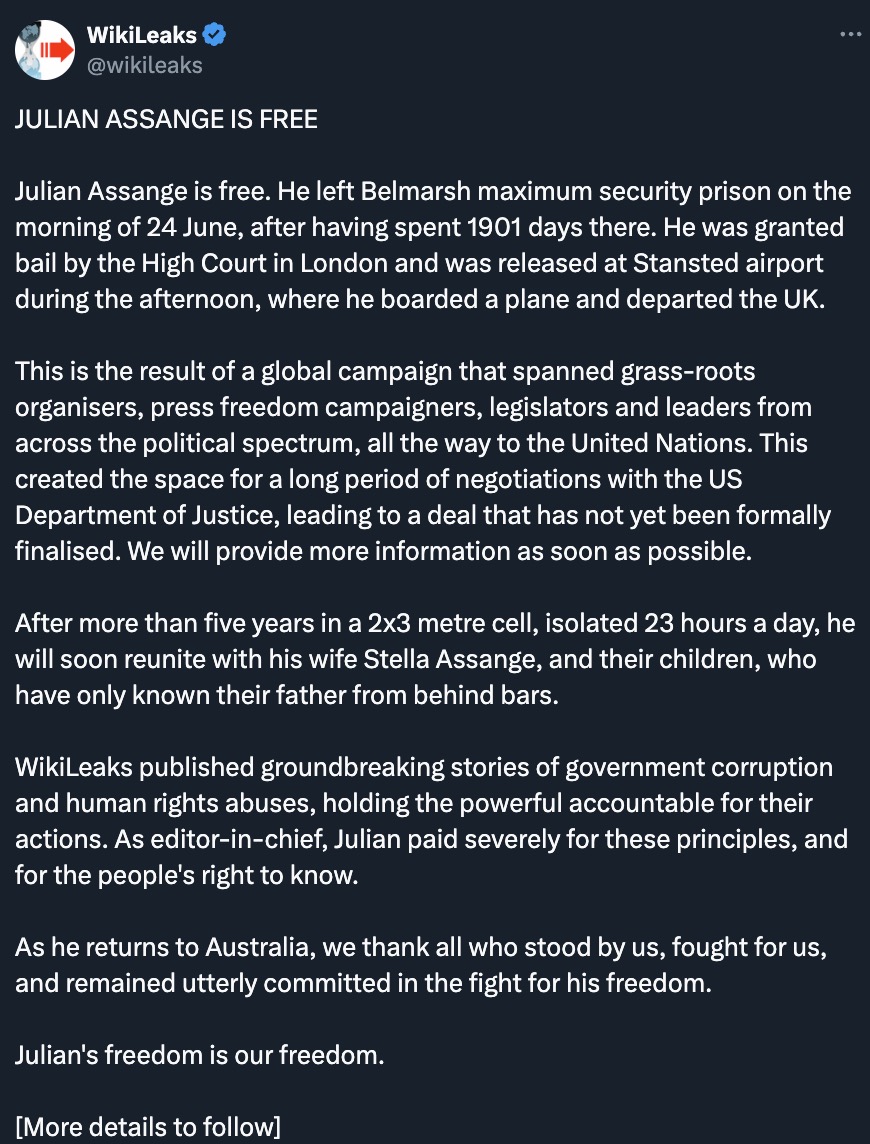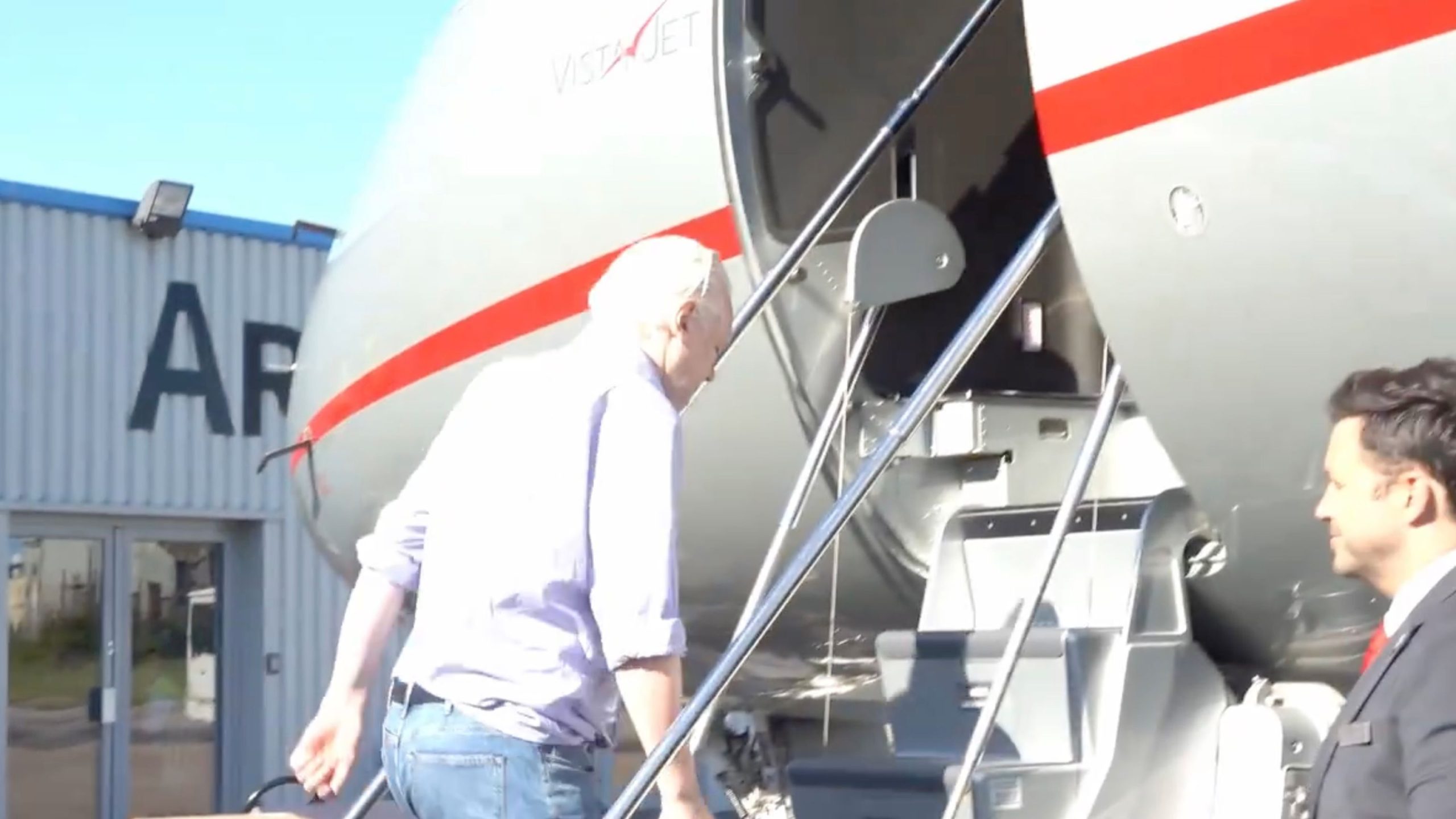With a turning point in the saga of journalist, activist, and WikiLeaks founder Julian Assange, federal court documents reveal that he has consented to a plea agreement with the US Justice Department.
We obtained a copy of the court filings for you here.
This deal stipulated that Assange would plead guilty to a felony charge linked to one of the most significant breaches of US classified information. However, it notably spares him from serving any time in a US prison by recognizing the duration he has already spent incarcerated.
According to Wikileaks, Assange has already been released from Belmarsh maximum security prison in the UK. After 1,901 days—more than five years—behind bars, Assange walked free on the morning of June 24. His release was facilitated by a High Court decision in London granting him bail. By the afternoon, Assange was at Stansted airport, boarding a plane to leave the UK.

Julian Assange’s legal battle has captured global attention, particularly highlighting issues of freedom of information and the rights of journalists and whistleblowers. Under the deal’s terms, Assange is sentenced to 62 months, equivalent to the time he has already served in a high-security London facility while contesting his extradition to the US.
The backdrop to this development includes Assange’s initial indictment in 2019, which comprised 18 counts related to his purported involvement in publishing classified US documents, notably related to the controversial Iraq war.
Assange’s role primarily involved the dissemination of sensitive US military documents that had been leaked by Chelsea Manning, a former Army intelligence analyst, during 2010 and 2011.
These documents included swathes of unredacted US diplomatic communications and other sensitive material such as Iraq war logs, details concerning Guantanamo Bay detainees, and evidence that the US was involved in the killing of two Reuters journalists.
The Reuters photographer leak was titled “Collateral Murder.” This video, shot from a US Apache helicopter, graphically depicted the killing of several individuals in Baghdad, Iraq, in July 2007.
The video shows the helicopter crew targeting and firing at a group of men in a suburb of Baghdad. Among those killed were two Reuters news staff: Saeed Chmagh and Namir Noor-Eldeen. The crew mistook their cameras for weapons, leading to this tragic incident. The footage also captured the aftermath, including a van arriving at the scene to pick up the wounded and dead, which was then also fired upon by the helicopter. Two children in the van were injured.
The release of this footage was explosive because it challenged the official US military account of the incident, which did not initially disclose that journalists were among the casualties and described the confrontation as an engagement with armed insurgents.
US authorities have long contended that Assange’s actions not only breached national security but also placed numerous confidential sources at risk. The potential maximum sentence for these charges could have extended up to 175 years.
In recent times, President Joe Biden has hinted at negotiations influenced by Australian officials aimed at facilitating Assange’s return to Australia. Nevertheless, key figures within the FBI and Justice Department maintained that any agreement must include Assange’s admission of guilt to a felony.
Last month, a pivotal victory came Assange’s way when a UK court affirmed his right to appeal against his extradition to the US, marking a significant moment in his protracted legal struggle against the charges levied against him. This ruling provided Assange a crucial leverage in his fight to avoid facing trial in the US for his alleged crimes.
The case has been a flashpoint in discussions about free speech and the rights of journalists and whistleblowers.










